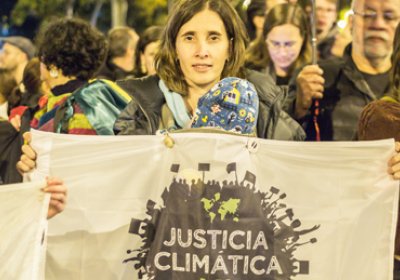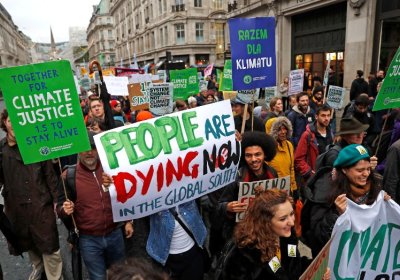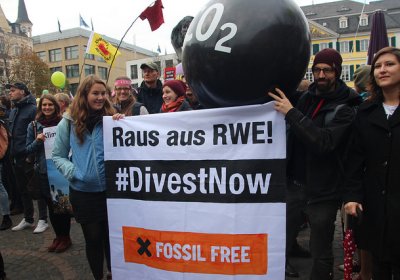While UN Secretary-General António Guterres urged COP29 delegates to act urgently on mitigating rising temperatures, the fossil fuel industry heard the sound of money changing hands. Binoy Kampmark reports.
United Nations Climate Change Conferences
At the recent Bonn climate talks, the rulers of rich nations act like arsonists who, after lighting the fire, prevent anyone calling the fire brigade, writes Alex Bainbridge.
War and climate change are linked: one cannot be solved without solving the other, and neither can be resolved by capitalism. Because this is all too obvious, William Briggs argues a lot of time and effort is spent on obscuring the truth.
The climate-denying federal government is putting Australia on track to reach net zero emissions in 300 years, writes Sarah Hathway.
United Nations Secretary-General António Guterres delivered another bleak warning about the climate emergency on December 2. He told the 197 country leaders assembled that global average levels of carbon dioxide have now gone over what used to be considered an “unthinkable global tipping point”.
This is an eyewitness account of the UN Climate Conference COP24, held in Katowice, Poland, in December last year from the perspective of one of the 30,000 participants. All attempts will be taken to avoid acronyms of climate terms, or at least explain them, and I will outline the ‘insider information’ that I got from my first COP.
Australia is sweltering through another summer heatwave, with disastrous consequences for many vulnerable people. Walgett, in north-west NSW, ran out of water and catastrophic fires are threatening communities in Victoria and Tasmania.
Another United Nations climate conference (COP23) is over — though many people would have barely noticed, given the lack of media coverage. The Paris Climate Agreement is locked in and, contrary to the Coalition’s inetrpretation, Australia needs to ratchet up its emissions reduction.
This is a useful time to reflect on where Australia sits globally on climate action and what areas are of concern.
Australia’s behaviour at the UN Climate Conference in Bonn (COP23) has been described as that of a bully. Australia has collected a swag of “Fossil of the Day” awards — given daily by climate activists to the country or group doing its best to stop effective action on climate change.
Australia, along with the US, has been disgracing itself in one of the most contentious areas of the climate talks, known as Loss and Damage. Other developed countries, particularly the European Union and Canada, have not been very helpful either.
The United States is now the only country trying to undermine the Paris Agreement on climate change. While other countries are pledging to cut their emissions — often inadequately, but at least accepting the need — the US intends to raise them.
Meanwhile, the US is taking a step forward on the geoengineering path. Geoengineering, specifically Solar Radiation Management (SRM), refers to large-scale human interventions into the Earth’s climate. These aim to cut the levels of solar radiation that reach the Earth’s surface to artificially cool the planet.
Peasants, small farmers and Indigenous peoples “feed the world and cool the planet”. This is what the global peasant movement, La Via Campesina, has come to Bonn to put onto the agenda at the COP23 climate meetings — both in the official space and at the People’s Climate Summit where social movements met to strategise for alternatives to capitalism and its climate crisis.
Climate activists awarded Australia the very first “Fossil of the Day” at the UN Climate Conference in Bonn, being held from November 6-17. This award is given daily to the country judged to be doing the best to block effective progress on climate change.
Australia got the award for actively supporting the development of coal mining in the Galilee Basin, particularly the Adani project. Fittingly, Australia was presented the award by Pacific Islanders, who are very vulnerable to climate change impacts.
- Page 1
- Next page











